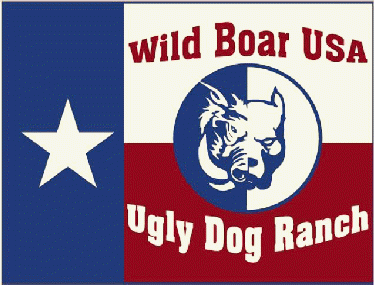|
Scott
|
 |
« Reply #60 on: April 07, 2016, 11:31:56 pm » |
|
Now, how many breedings and how long do you believe it would take to develop a consistent line that produces consistency if starting from scatterbred dogs? When does a line become "your" line? Some folks believe it's their line when they buy two dogs and breed them...others believe it takes more than a generation or two...
|
|
|
|
|
 Logged
Logged
|
|
|
|
|
parker49
|
 |
« Reply #61 on: April 07, 2016, 11:50:42 pm » |
|
you can increase your odds by line breeding and culling out the oddballs from breeding stock no matter how good they are ....... my dogs are black brindle dogs I have select bred the rest out ....that's where my consistantcy has come from .... those oddballs you get is throw backs and can change or I say will change your breeding to some degree ..... I haven't had one in a long time... people ask me some times larry you want to breed to this certain dog and get back some of your old blood ...I say no no no .....I get more consistant all the time and I like it .....now far as dogs like my joe dog was well they come here and there but any dog I get half as good as he was is still a good dog and thats success ... the thing about opinions is they gonna be based on personal experience so nobodies wrong here true opinions based on what you no is not wrong just maybe not exactly wright just like my opinions are.....
|
|
|
|
|
 Logged
Logged
|
|
|
|
|
parker49
|
 |
« Reply #62 on: April 07, 2016, 11:54:00 pm » |
|
I'd say about 6 generations to get consistant .....
|
|
|
|
|
 Logged
Logged
|
|
|
|
|
oconee
|
 |
« Reply #63 on: April 08, 2016, 08:29:54 am » |
|
I think it all depends on how tightly the stock you started with was bred. If a guy picks a couple families of dogs that have been bred pretty tight and takes off he could accomplish the consistency in a matter of 2-3 generations, assuming he choose two families that already closely fit his needs. Now if most dogs in the ancestry of the families of dogs choose were scattered completely and no resemblances could be found for generations them it could take a while to start seeing consistentency. Just my thoughts, I'm by no means a pro breeder buy i've had the pleasure of listening to and being around some of the best tho.
|
|
|
|
|
 Logged
Logged
|
|
|
|
|
Mike
|
 |
« Reply #64 on: April 08, 2016, 09:11:41 am » |
|
Larry, did you notice your dogs getting smaller the tighter you bred them? My last litter all came out quite a bit smaller after 4 generations.
|
|
|
|
|
 Logged
Logged
|
|
|
|
|
TheRednose
|
 |
« Reply #65 on: April 08, 2016, 09:37:54 am » |
|
Larry, did you notice your dogs getting smaller the tighter you bred them? My last litter all came out quite a bit smaller after 4 generations.
I'm not Larry but I will tell you that is a very common effect of what they call inbreeding depression. A lot of times when genes get real tight loss of size is a lot of times what is first noticed. We used to see it all the time with bulldogs. It just happened with my friends litter of Mayday pups he had about 14 months ago. The dam was a little over 50lb the father walks around 60lb and so far it looks like none of the pups male or female will get even close to 50lb so far the females looks they are going to range between 35-40, and males 40-47lb maybe. Both dogs were very closely bred, and both bred pretty tight from the same family. Whats weird in my opinion is how some families hold up to inbreeding really well and you can breed them super tight without many problems and other families as soon as you start, you notice defects and problems. I always thought that was based on how big of a gene pool you started with but there seems to be other factors too. |
|
|
|
|
 Logged
Logged
|
|
|
|
|
oconee
|
 |
« Reply #66 on: April 08, 2016, 10:28:41 am » |
|
I think i'll have to disagree with the dogs getting smaller with tight breeding theory. In my experience the "game dog" breeders and "plott bear dog" breederst are the tightest of all breeders and I have been around many breeders of both and have yet to see it. I fact probably the tightest plott bear dog breeder I know has huge dogs. I suppose sometimes a litter may come out a little smaller on occasion depending on certain parents from the particular family but as a whole I can't believe inbreeding will shrink the line, no matter how tight. Another thing I strongly disagree with is "outcrossing!" Outcrossing is only needed to bring in needed traits from another specimen from another tight family that exhibits the needed trait stongly. IMO. When a tightly bred cross fails it's not a sign that you need an outcross, it's a sign to not cross them two family members again. If you have v what you need in you dogs then keep it and do not add anything else. All crosses don't work and by jumping thru your butt and outcrossing because one cross didn't meet your expectations you could possibly bring in all sorts of unknown traits to deal with for generations to come for no reason. Sorry just some more rambling from stuff i've learned from breeders I REALLY respect.
|
|
|
|
|
 Logged
Logged
|
|
|
|
|
TheRednose
|
 |
« Reply #67 on: April 08, 2016, 11:11:23 am » |
|
I think i'll have to disagree with the dogs getting smaller with tight breeding theory. In my experience the "game dog" breeders and "plott bear dog" breederst are the tightest of all breeders and I have been around many breeders of both and have yet to see it. I fact probably the tightest plott bear dog breeder I know has huge dogs. I suppose sometimes a litter may come out a little smaller on occasion depending on certain parents from the particular family but as a whole I can't believe inbreeding will shrink the line, no matter how tight. Another thing I strongly disagree with is "outcrossing!" Outcrossing is only needed to bring in needed traits from another specimen from another tight family that exhibits the needed trait stongly. IMO. When a tightly bred cross fails it's not a sign that you need an outcross, it's a sign to not cross them two family members again. If you have v what you need in you dogs then keep it and do not add anything else. All crosses don't work and by jumping thru your butt and outcrossing because one cross didn't meet your expectations you could possibly bring in all sorts of unknown traits to deal with for generations to come for no reason. Sorry just some more rambling from stuff i've learned from breeders I REALLY respect.
|
|
|
|
|
 Logged
Logged
|
|
|
|
|
Scott
|
 |
« Reply #68 on: April 08, 2016, 12:09:35 pm » |
|
Just like TheRednose....I've seen it myself
|
|
|
|
|
 Logged
Logged
|
|
|
|
|
TheRednose
|
 |
« Reply #69 on: April 08, 2016, 12:18:56 pm » |
|
I think i'll have to disagree with the dogs getting smaller with tight breeding theory. In my experience the "game dog" breeders and "plott bear dog" breederst are the tightest of all breeders and I have been around many breeders of both and have yet to see it. I fact probably the tightest plott bear dog breeder I know has huge dogs. I suppose sometimes a litter may come out a little smaller on occasion depending on certain parents from the particular family but as a whole I can't believe inbreeding will shrink the line, no matter how tight. Another thing I strongly disagree with is "outcrossing!" Outcrossing is only needed to bring in needed traits from another specimen from another tight family that exhibits the needed trait stongly. IMO. When a tightly bred cross fails it's not a sign that you need an outcross, it's a sign to not cross them two family members again. If you have v what you need in you dogs then keep it and do not add anything else. All crosses don't work and by jumping thru your butt and outcrossing because one cross didn't meet your expectations you could possibly bring in all sorts of unknown traits to deal with for generations to come for no reason. Sorry just some more rambling from stuff i've learned from breeders I REALLY respect.
|
|
|
|
|
 Logged
Logged
|
|
|
|
|
|
|
oconee
|
 |
« Reply #71 on: April 08, 2016, 12:23:17 pm » |
|
I have NOT seen it.
|
|
|
|
|
 Logged
Logged
|
|
|
|
|
Sourlaken357
|
 |
« Reply #72 on: April 08, 2016, 01:42:50 pm » |
|
I've learned a lot so far but I have a question. I got two male curs that were inbred but out of a very good family of dogs. Only two of litter that turned out. If I bred one of my males to a good stock gyp would I breed the inbred out? Or will the bad inbreeding traits go to the pups?
Sent from my iPhone using Tapatalk
|
|
|
|
|
 Logged
Logged
|
|
|
|
|
|
|
|
|
|
|
TheRednose
|
 |
« Reply #76 on: April 08, 2016, 06:01:07 pm » |
|
Those sure are some nice looking dogs Mr. Parker
|
|
|
|
|
 Logged
Logged
|
|
|
|
|
Mike
|
 |
« Reply #77 on: April 08, 2016, 06:07:29 pm » |
|
Thanks fellas... I was just curious. Most all the dogs related to mine were in the 60-70 lb range, a few oddballs that were over 70. The litter I'm referring to are mostly 50-60 lb dogs... which is about right for my liking. I'll be curious to see how this new litter turns out.
Good lookin dogs Larry.
|
|
|
|
|
 Logged
Logged
|
|
|
|
|
Shotgun66
|
 |
« Reply #78 on: April 08, 2016, 06:31:52 pm » |
|
THANK YOU to all the experienced dog men on this thread for sharing your experience, your knowledge, and your opinions. It's nice to see guys who have achieved your level of success be willing to share your insight @ no $!
-
There are a few of us middle age fellas who are @ a point in our lives where we have the resources/time and are willing to listen, learn, and apply the knowledge you have to share.
-
Hopefully we can take what you have to teach us and apply it in a manner that will allow us to push more quality workin dogs into the woods.
|
|
|
|
|
 Logged
Logged
|
Leon Keys
Dish, Tx
817.899.7664
|
|
|
|
Semmes
|
 |
« Reply #79 on: April 08, 2016, 07:36:22 pm » |
|
Second that ^ shotgun
|
|
|
|
|
 Logged
Logged
|
|
|
|
|



